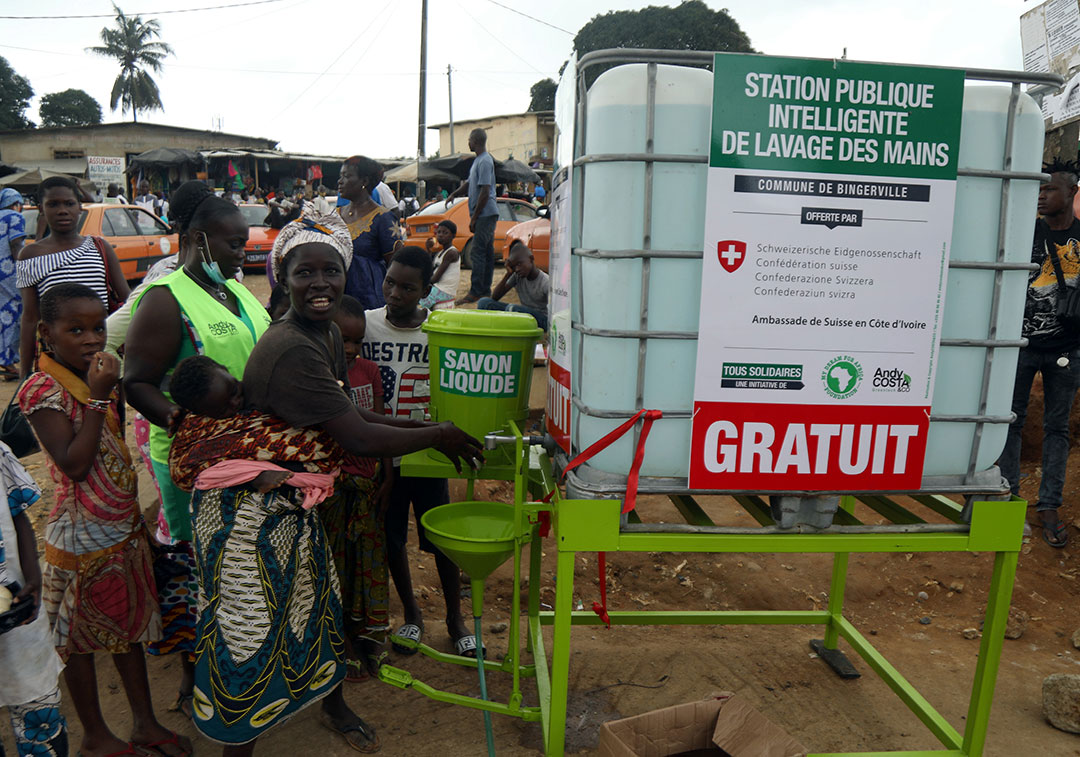Summit Leaves Debt Questions Unanswered
ADF STAFF
In a much-anticipated web address, Chinese President Xi Jinping pledged to stand by Africa during and after the COVID-19 crisis.
“I am convinced that humanity will ultimately defeat the virus and that the Chinese and African people are poised to embrace better days ahead,” Xi said, speaking in Mandarin and flanked by a row of national flags from the continent as part of a virtual China-Africa summit on COVID-19.
But the June 17 speech lacked concrete plans and left observers wondering what the lofty promise means. Africa’s economies are set to shrink by at least 3% in 2020 due to the pandemic, according to the International Monetary Fund (IMF), and many were hoping for bold action.
“It is now time for China to prove its so-called ‘generosity’ towards Africa, through actions, not only words,” wrote the pan-African news network Afrique Media.
Xi addressed debt forgiveness by repeating a pledge to wipe away interest-free loans to African countries and encouraged Chinese financial institutions to have “friendly consultations” with African countries about other debt while still respecting “market principles.”
But observers point out that the interest-free loans represent a fraction of China’s total portfolio of loans to Africa –– 9%, according to one estimate.
“Interest-free loans are canceled quite often,” said Marina Rudyak, a lecturer at Heidelberg University’s Institute of Chinese Studies who tracks Chinese foreign investment. “Actually, it appears they are always canceled when a country declares it cannot repay.” Rudyak summed up the Xi speech by saying: “All in all, nothing new here.”
The one-on-one consultations with Chinese creditors and African countries are a long-standing preference of China, which favors negotiating individually on debt restructuring rather than making blanket agreements. In some cases these negotiations result in further concessions. South African journalist Cobus van Staden wrote in Africa Portal that private Chinese lenders can “drag their feet while time is running out for African countries to arrange an alternative before facing default.”
Romuald Wadagni, Benin’s minister of economy and finance, said the proposed debt relief does little more than “push the problems to next year.” He told TV5Monde he feared long-term distress: “This would hamper our ability to access funding in the future and return to the path of growth.”
In his speech at the virtual summit, South African President Cyril Ramaphosa thanked the Chinese people for the donation of personal protective equipment but said more relief is needed. He proposed a two-year debt standstill, a plan to restructure private and bilateral debt, and asked for the international community to free up $100 billion in unused Special Drawing Rights money from the IMF for Africa. “Although the COVID-19 pandemic will pass, its consequences for people, economies and our planet will be with us for a long time to come,” Ramaphosa said.
Others are echoing the sentiment that new investment is needed to jumpstart their economies.
At a different event, Nigerien President Mahamadou Issoufou stressed that the debt relief on offer does not come close to addressing the continent’s economic woes caused by the virus. “The scale of the economic crisis that our states are experiencing requires financial support well beyond a simple moratorium [of debt],” said Issoufou, acting president of the Economic Community of West African States, in a June 8 address. “Our countries need fresh financial resources, not only to face the pandemic but to restart the economy.”


Comments are closed.